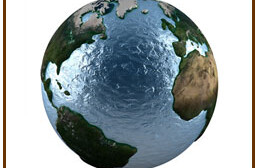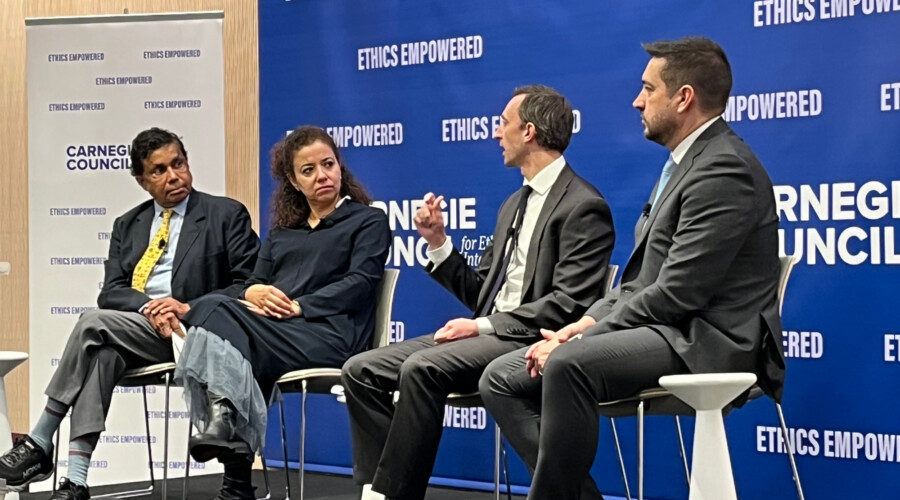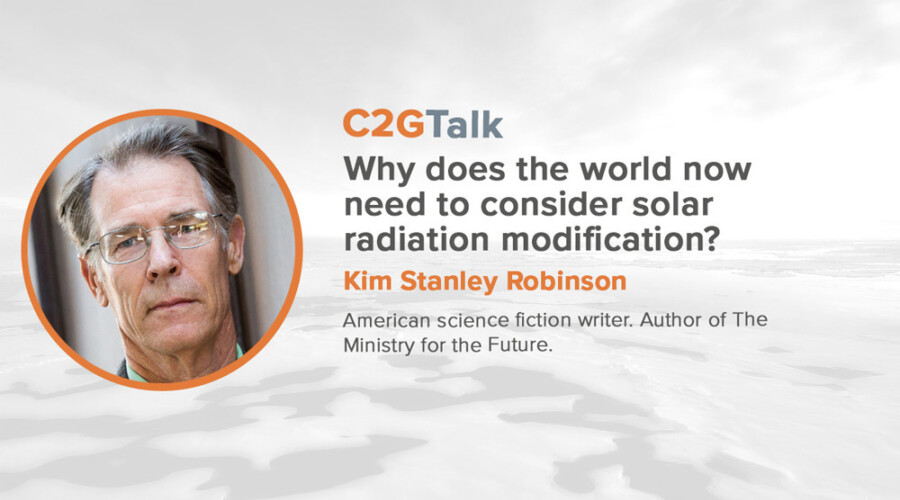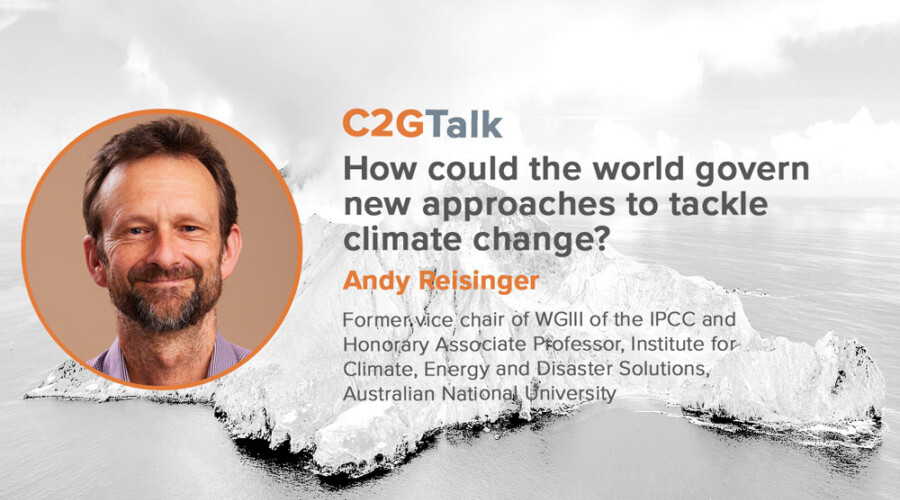Chenaz B. Seelarbokus is an assistant professor of public administration at Kennesaw State University's Department of Political Science & International Affairs in Kennesaw, GA.
Essay Question: What does sustainability mean to you?
It is reported that in the search for traditional medicinal cures from the Amazonian forests, the native knows that the miracle plant cannot be picked unless and until a second similar plant has been found. This story, though simple in its narrative, embodies everything that we need to know and understand about sustainability in our life and in the environment. The story talks about a deep environmental consciousness, and it is a very powerful attestation of the individual's respect for the environment, whereby the environment is given the chance to self-regenerate to provide essential ecosystem services to future seekers of the plant. The story talks beautifully about meeting one's own needs without compromising the ability of future generations to meet theirs (Brundtland Report). The story talks about the necessity of surmounting greed for the common good and it exemplifies an inherent understanding that the planet is meant for others as well and not just for one's own selfish needs. And this is what sustainability means to me.
The concept of sustainability is a beautiful and powerful framework for guiding human development. For me, sustainability implies taking from the environment only what we need and allowing it to self-perpetuate; respect for the rights of all creatures to coexist in harmony; and an understanding of and respect for the natural interconnectedness of the planet. As a teacher of international environmental policy, I have always been struck by the fact that what impacts my students the most is the viewing of Planet Earth as a globe without borders or jurisdictions: students always report feelings of shock when they realize that the global environment is indeed one interconnected system—we have only one ocean mass, one land, and one atmosphere. For sustainability to prevail as the dominant paradigm, this global interconnectedness of the planet needs to be understood and experienced at all levels of society.
Indeed, sustainability cannot be confined solely to the arena of the environment. For the environment to thrive in a sustainable way, sustainability has to permeate all dimensions of human life—including the socio-economic and cultural ones. It is for good reason that ancient philosophers such as Socrates, Plato, and Aristotle have concerned themselves with what it means to have the good life, and about notions of justice, equality, freedom, and human rights. While we may quibble about definitions of sustainability, it can be agreed however that life on this planet will indeed be unsustainable under conditions where power trumps justice and fairness; where there is no shared governance; where individual efforts are guaranteed of failure irrespective of the energy or passion put in; where the poor remain poor without hopes for a better future; where crimes are tolerated with impunity; where children are abused; where families are broken; where gender equality is not safeguarded; where minorities are oppressed; where women are abused and their contributions not valued; where the freedom of citizens is curtailed and where the wishes of the citizens have to give in to the powerful groups of society, inter alia.
If we are to be serious about having a sustainable planet and a sustainable mode of living, we cannot but be concerned with the sustainability of our socio-economic systems. For sustainability to be realized, we need an economic and political system premised upon the foundations of justice, fairness, peace, and a genuine commitment to the humanitarian welfare of others. Fundamentally therefore, the seed for sustainable living conditions starts with our leadership and our societal goals and objectives. Sustainability necessitates a leadership that is visionary, benevolent, ethical, and responsive to the needs and aspirations of the population. Worldwide, leaders are needed who can focus on long-term goals for sustainable development rather than short-term political gains. However, for such to be achieved, we also need citizens who can judge leaders accordingly. Can the populace see beyond the short-term ideological standpoint and focus on whether the leaders are committed to ensuring the sustainability of the planet? In other words, is the citizenry ready for great leaders when such come along? It is indeed a tragedy of the commons when great leaders fail to implement their vision for a better future because the population has not been able to see the merits of such long-term goals and has thus failed to provide the needed popular support. Whether we are to take a precautionary approach towards major global environmental threats such as climate change, or whether we will premise our development on short-term economic gains depends very much on a visionary leadership as well as citizen support for such leadership.
However, high-level leadership is not the only criterion; sustainability has to be the driving force for all sectors of the modern society—the government, the nonprofit sector, and the private sector. Though by default the government and nonprofit sectors of society are mandated to be motivated by the common public good, they cannot be assumed to be de facto working towards such a goal. The public sector has to shift to embrace more pervasively a new definition of the common good which does not preclude the welfare of future generations or the long-term conceptualization of a sustainable planet. Public decision-making and policy implementation have to shift to meet the new demands for a sustainable world. For sustainability to be realized, we need an integrated decision-making framework where different specialists, technical experts, scientists, and policy-makers work in concert to determine the best policies for a particular subject matter. Too often we have unsustainable policies being implemented because of the predominance of narrow concerns, or the lack of inclusion of other viewpoints. Thus, our educational system and our political processes need to evolve to allow for such integrated thinking and decision-making in order to ensure a sustainable planet for current and future generations. Sustainability implies a holistic perspective—and such cannot be achieved with compartmentalized thinking and rigid decision-making.
The recent major corporate scandals have shown us that we have deluded ourselves for decades with the rationale that the bottom-line is profit. In the face of the pain and suffering caused by such limited thinking, it is clear now that the bottom-line cannot be just profit—but rather sustainable profit. And what this means is that businesses need to be run in such a way that both societies and shareholders benefit. In this perspective, business practices are aligned with ethics, corporate social responsibility, employee welfare, social impact investing and social dividends. It means that businesses, whether in their domestic or in their transnational operations, will always maintain appropriate environmental safeguards, will respect the local cultures and modes of living, and will ensure that citizens prosper when the businesses prosper. As unceremonious as this may sound, for sustainability to prevail, we need business leaders who are concerned about the public good and not just short-term bottom line thinking; we need business leaders who are trained and sensitized to the impact of their activities on the planet and ecosystems, and to their role and responsibility as a major economic driving force in modern human existence.
If I were to summarize what sustainability means to me, to my community, and to the world in general, I would say that sustainability is a balancing act. Sustainability implies taking the middle path and committing to moderation in our goals and objectives. On a personal level, sustainability deals with my relationship with others in society, and my success in maintaining a healthy equilibrium between my mental, physical, and spiritual needs. To foster a sustainable community life, I cannot but be concerned about the environmental conditions within my community and the living conditions of my fellow neighbors. Whether I recycle, become politically active, support green agriculture, commit to energy efficiency and green products, reduce wastes, or worry about the environmental costs and ramifications of modern warfare—all these individual concerns and decisions impact the sustainability of our planet.
Ultimately, sustainability means balancing the needs of man with the needs of the planet. Sustainability means balancing economic and environmental goals; fulfilling societal goals while respecting the needs and interests of the individual citizen; balancing the various pressures on the environment, the individual, and the society based on general principles of justice, equality, fairness, freedom, and peace; and addressing global environmental problems in a balanced way whereby economic concerns do not overly determine policies and where science is used in a fair manner to allow for a precautionary approach where threats of irreversible damage are preponderant. Even though sustainability is a modern "buzz word," it is however the antithesis of the modern ethos. For sustainability to be realized in any meaningful way for current and future generations, we need to go back to the basics: balance, respect for life, respect for the environment, and a genuine and solid commitment to the non-negotiable ideals of justice, peace, equality and freedom. Sustainability is living a life worthy of human dignity, and placing the individual in the grand scheme of things, where every single life and species is worthy, and the environment is respected.



